SPENCER D. BAKICH is assistant professor in the Department of Government and International Affairs at Sweet Briar College.
The University of Chicago Press, Chicago 60637
The University of Chicago Press, Ltd., London
2014 by The University of Chicago
All rights reserved. Published 2014.
Printed in the United States of America
23 22 21 20 19 18 17 16 15 14 1 2 3 4 5
ISBN-13: 978-0-226-10768-4 (cloth)
ISBN-13: 978-0-226-10771-4 (paper)
ISBN-13: 978-0-226-10785-1 (e-book)
DOI: 10.7208/chicago/9780226107851.001.0001
Library of Congress Cataloging-in-Publication Data
Bakich, Spencer D., author.
Success and failure in limited war : information and strategy in the Korean, Vietnam, Persian Gulf, and Iraq Wars / Spencer D. Bakich.
pages cm
Includes bibliographical references and index.
ISBN 978-0-226-10768-4 (cloth : alk. paper) ISBN 978-0-226-10771-4 (pbk. : alk. paper) ISBN 978-0-226-10785-1 (e-book)
1. United StatesHistory, Military20th century. 2. United StatesHistory, Military21st century. 3. Korean War, 19501953. 4. Vietnam War, 19611975. 5. Persian Gulf War, 1991. 6. Iraq War, 20032011. I. Title.
E745.B35 2014
355.00973dc23
2013022422

This paper meets the requirements of ANSI/NISO Z39.481992 (Permanence of Paper).
Acknowledgments
No book is written in isolation; or, at least this one wasnt. The debts I have accumulated over the years are substantial, and I am grateful to have worked with, and learned from, truly talented people. The four people to whom I am most indebted are Jeff Legro, John Owen, Dale Copeland, and Mel Leffler. Each of them read multiple manuscript drafts, offered trenchant critiques, and provided me with tremendous support. I could have asked for no finer group of scholars to have worked with. Jeff, in particular, has been a model mentor and colleague of many years; he is honest, demanding, and always encouraging. Many others, of course, read parts of the manuscript and were extraordinarily gracious with their time and focus. In particular, I must thank Allen Lynch who not only read an early draft of the book but also has been a source of steadfast support over my career. Herman Schwartz, Brantly Womack, Mark Haas, Will Waldorf, Eric Cox, David Waldner, Gerard Alexander, and Sophie Richardson provided valuable critical commentary for which I am thankful. Two individuals merit special attention: Kelly Erickson and Dennis Smith. This book would not exist had it not been for their machete work on my earliest ideas and drafts; they were (and are) available at the drop of a hat to hear me out and push back hard. I have no better colleagues and friends than these two. With the exception of Mel Leffler (who is in the Department of History), I crossed paths with all of these fine people in the Department of Politics at the University of Virginia.
I have benefited from the advice and support of many of my colleagues at Sweet Briar College. Most importantly, Steve Bragaw and Padmini Coopamah have been unflagging in their enthusiasm for this project. I could have asked for no finer colleagues, and I cannot thank them enough. Kevin Honeycutt, John Ashbrook, Dan Gottlieb, Janet Steven, Dave Griffith, Claudia Chang, and Lisa Johnston have been similarly supportive. Comments and criticisms from a number of my students over the years have been quite helpful, and I am grateful to Morgan Roach, Caroline Sapp, Sarah Jones, Emily Richonne, Sarah Gray, and Nina Peck for them. Kat Alexander (currently a graduate student at Duke University) did a marvelous job compiling the index. I look forward to many years of intellectual engagementboth cooperative and combativewith her.
While working on the Persian Gulf War and Iraq War chapters, I was fortunate to have had the opportunity to participate in the George H. W. Bush and George W. Bush oral history projects at the Miller Center of Public Affairs at the University of Virginia. While there, I worked with many exceptional people, most notably Russell Riley and Barbara Perry. Barbara is among those on whom I can always count for strong words of encouragement and sage advice. I was fortunate to have been able to use the Miller Centers resources while conducting research for this book, the George H. W. Bush oral history project interviews, in particular. Sheila Blackford at the Miller Centers Scripps Library was tremendously helpful and accommodating, as were the many librarians at UVAs Alderman and Clemons libraries.
When beginning a project like this one, early encouragement can be particularly impactful. I am appreciative of the time that Steve Rosen gave me over a few lunch sessions at the Summer Workshop on the Analysis of Military Operations and Strategy (SWAMOS) in 2001. His encouragementand the off-the-cuff reading list he gave mecame at just the right time.
Working with the University of Chicago Press has been a wonderful experience. David Pervin showed early interest in this project, and Christie Henrys editorship has been exemplary. Shenyun Wu was of tremendous assistance in all phases of the publication process. Last, but certainly not least, the two anonymous reviewers who read the manuscript in its entirety provided me a treasure of critical comments and suggestions for improvement. I was fortunate to have had the chance to work with themwhoever they are.
I received funding to present selections of this book at multiple conferences from the Faculty Grants Committee at Sweet Briar College. Sections of appeared in Institutionalizing Supreme Command: Explaining Political-Military Integration in the Vietnam War, 19641968, Small Wars and Insurgencies 22 (2011): 688711.
Finally, and by far most importantly, I owe a debt of gratitude to my family. My mother and father, Kris and Rus Bakich, and my brother, Trent, have given me nothing but pure support throughout my life. I always know they are in my corner, no matter what the situation. My mother- and father-in-law, Ann and Bob Raikes, have been wonderful in their encouragement over the years. My two boys, Aiden and Jack, are my lights; they bring joy to my life every day. Among the sweetest questions I get is, Daddy, how is your writing coming? (It is usually followed with, Daddy, can I use that computer yet?) Finally, to my best friend, partner in crime, and love of my life, Kate. Without her, this book would not have been written. Who she is and what she does are a constant source of inspiration for me. How did I get so lucky? It is to her that this book is dedicated.

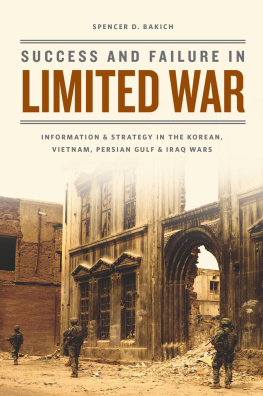
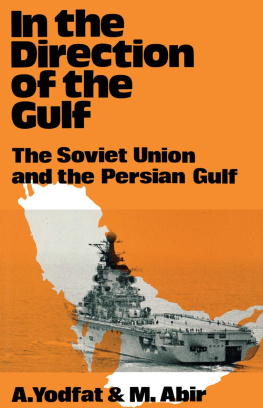
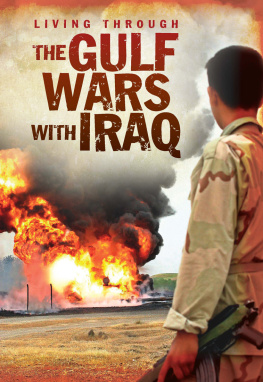
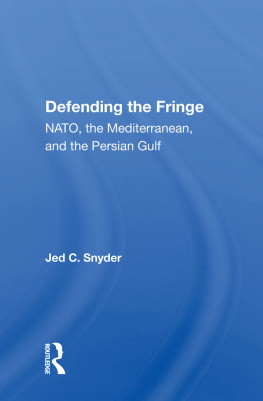
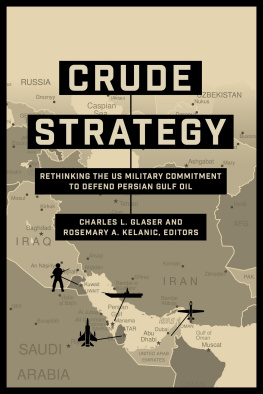
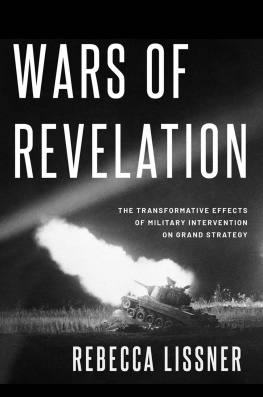

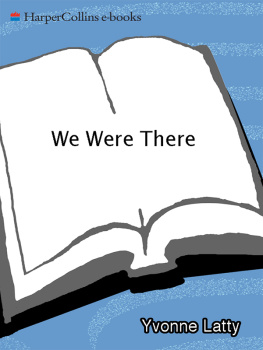
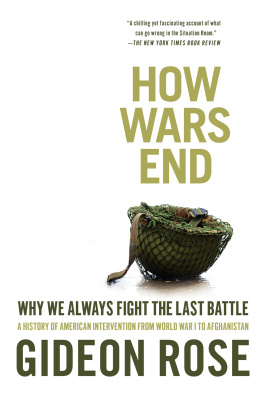
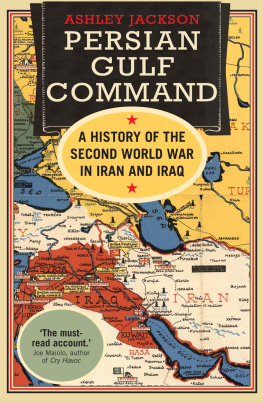
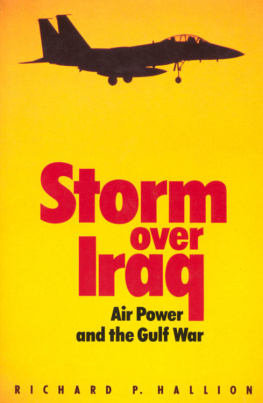
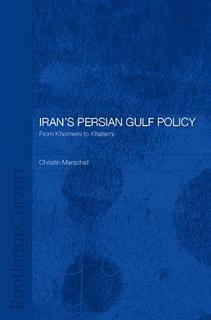
 This paper meets the requirements of ANSI/NISO Z39.481992 (Permanence of Paper).
This paper meets the requirements of ANSI/NISO Z39.481992 (Permanence of Paper).